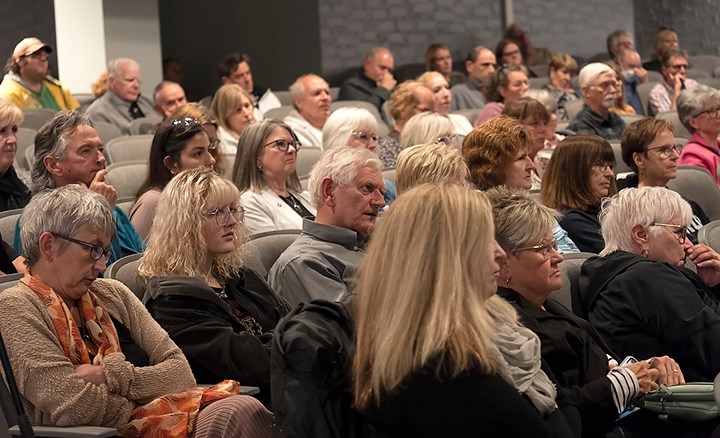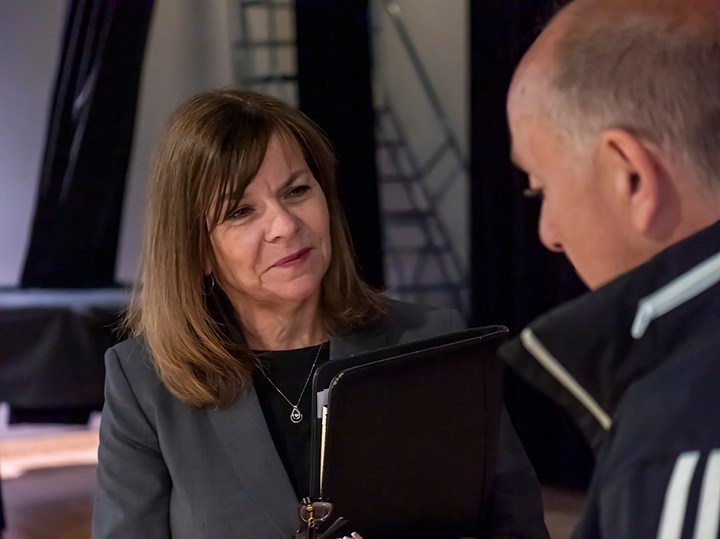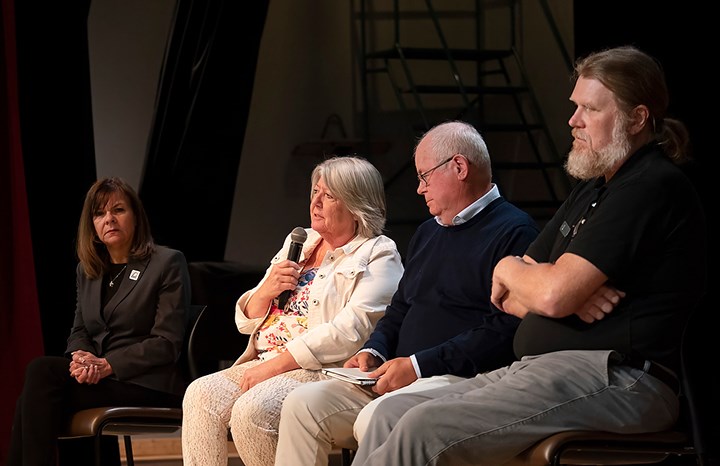Cathy Dobson
It’s not going to be a quick fix.
But there’s new hope that more affordable housing is on its way for the unprecedented number of people experiencing homelessness in Sarnia.
Nearly 150 concerned residents attended a launch event Thursday for the Rotary Club of Sarnia’s affordable housing initiative.
They discussed various types of affordable and supportive housing and heard about the dire need in our community to build more homes for people living on the streets or precariously housed.

The pandemic is generally blamed for a drastic 400% increase in homelessness in Sarnia-Lambton. And, even as things return to normal, the most recent count by Lambton County social services confirms at least 290 people are still living on the street, in a shelter or in very poor conditions.
“If you are around town, you see people experiencing homelessness,” said Rick Marsh, president of the Rotary Club of Sarnia. “We are a service club and we want to serve the community.
“On our own, our club can’t do it, so we are looking to get all levels of government to partner with us, we’re looking for land, and trying to find a solution,” Marsh said.
The club has approved an affordable housing initiative- one that will mean serious fundraising – but no specific concept has been selected. That’s still up for discussion. Meanwhile, members know they will need at least $250,000 just to get an affordable housing project to the site plan stage at city hall.
This club is accustomed to big projects. Its members built Pathways Health Centre for Children years ago and continue to help fund it. They gave Bluewater Health $1 million for expansion.
The challenge of building an affordable housing complex worth as much as $40 million is doable if municipal, provincial and federal government support is there, said Marsh.
Tickets are already on sale for the club’s first affordable housing fundraiser. While the usual Rotary pancake breakfast is being served in Point Edward’s Waterfront Park on Mackinac Saturday, July 15, a second outdoor breakfast “Extravaganza” will take place on the south side of the Blue Water Bridge with tables of eight selling for $5,000, including champagne.
“We are trying to raise a lot of money, as well as a lot of noise,” said Rotarian Heather Martin who is also on the club’s affordable housing committee.
“We’re shaking the trees to find a good location for affordable and supportive housing,” she said. “Sarnia’s homelessness problem is dire. It’s growing and it’s visible.”
Martin said she believes COVID-19 exposed a lot of our “warts” as a society.
“We should be ashamed that we have this problem.”
On Thursday, the Rotarian’s event included a viewing of a film about a charity called Indwell, which is building affordable housing across the province. It’s important that affordable housing comes with support services for mental health, addiction and other issues if people are going to stay housed, explained Scott Brush, an Indwell rep working on a new housing project for Chatham-Kent.
The goal is that no one in Sarnia-Lambton experiences homelessness, said Valerie Colasanti, general manager of Lambton County social services.
But the reality is that hundreds of affordable housing units are needed locally. It’s going to take more federal funding and more participation by the private sector as well as non-profit groups like the Rotary Club of Sarnia to close the gap, she said.

Meanwhile, the county has hired two outreach workers this year to work with people experiencing homelessness and help them with their immediate needs.
And just this week, social services opened the former Laurel-Lea St. Matthew’s Presbyterian Church on Exmouth Street so the homeless have a place to go every weekday afternoon.
It’s being called a “low-barrier, multidisciplinary and multiagency housing and homelessness hub” to address mental health issues, harm reduction, and provide other supports. It is also a place where snacks and coffee are available, as well as restrooms, computers and phones.
“The hope is that we will see people living on the street and help them find services,” Colasanti said. “We’re hoping it will help move them along so they are closer to being housed.”
